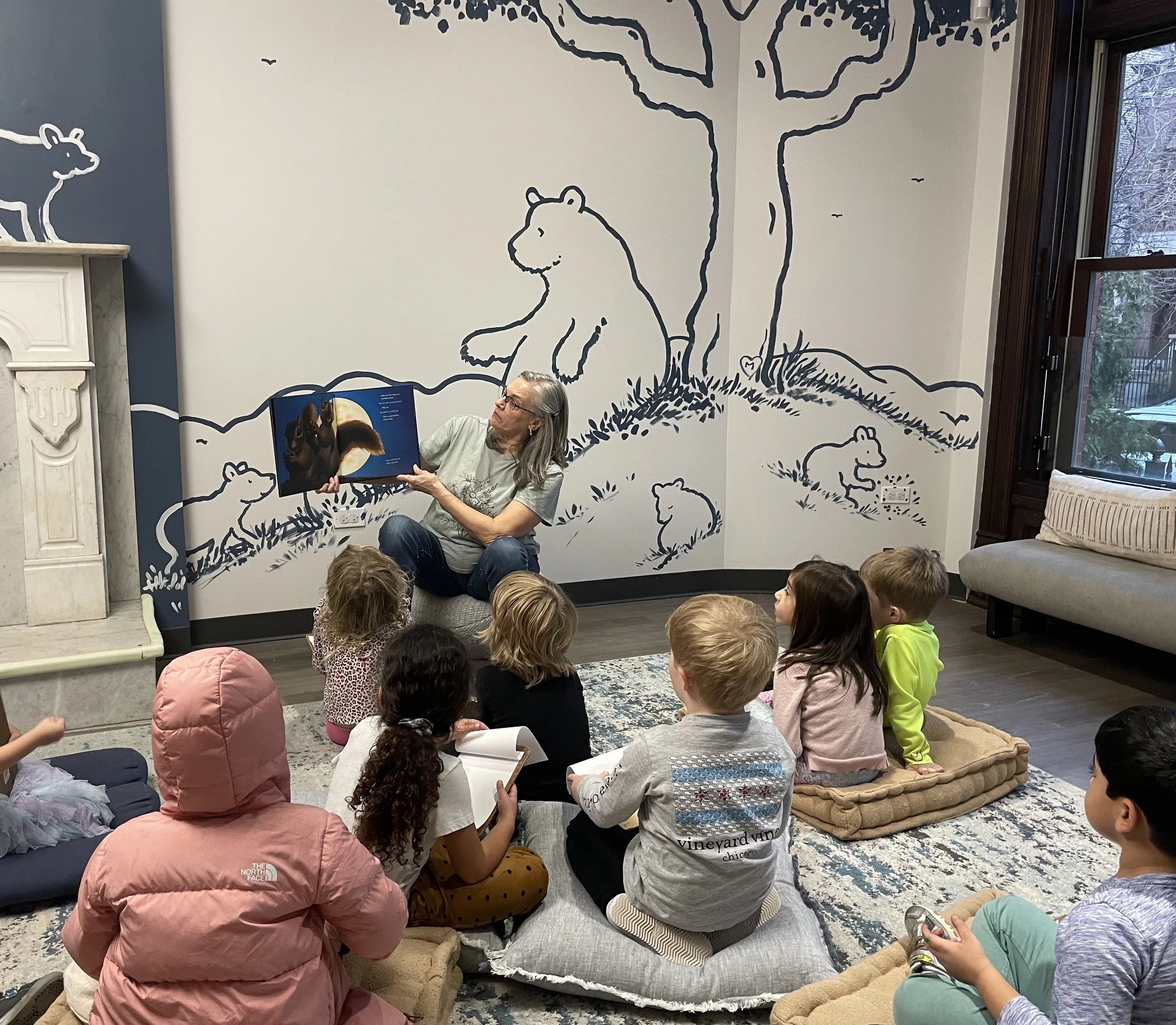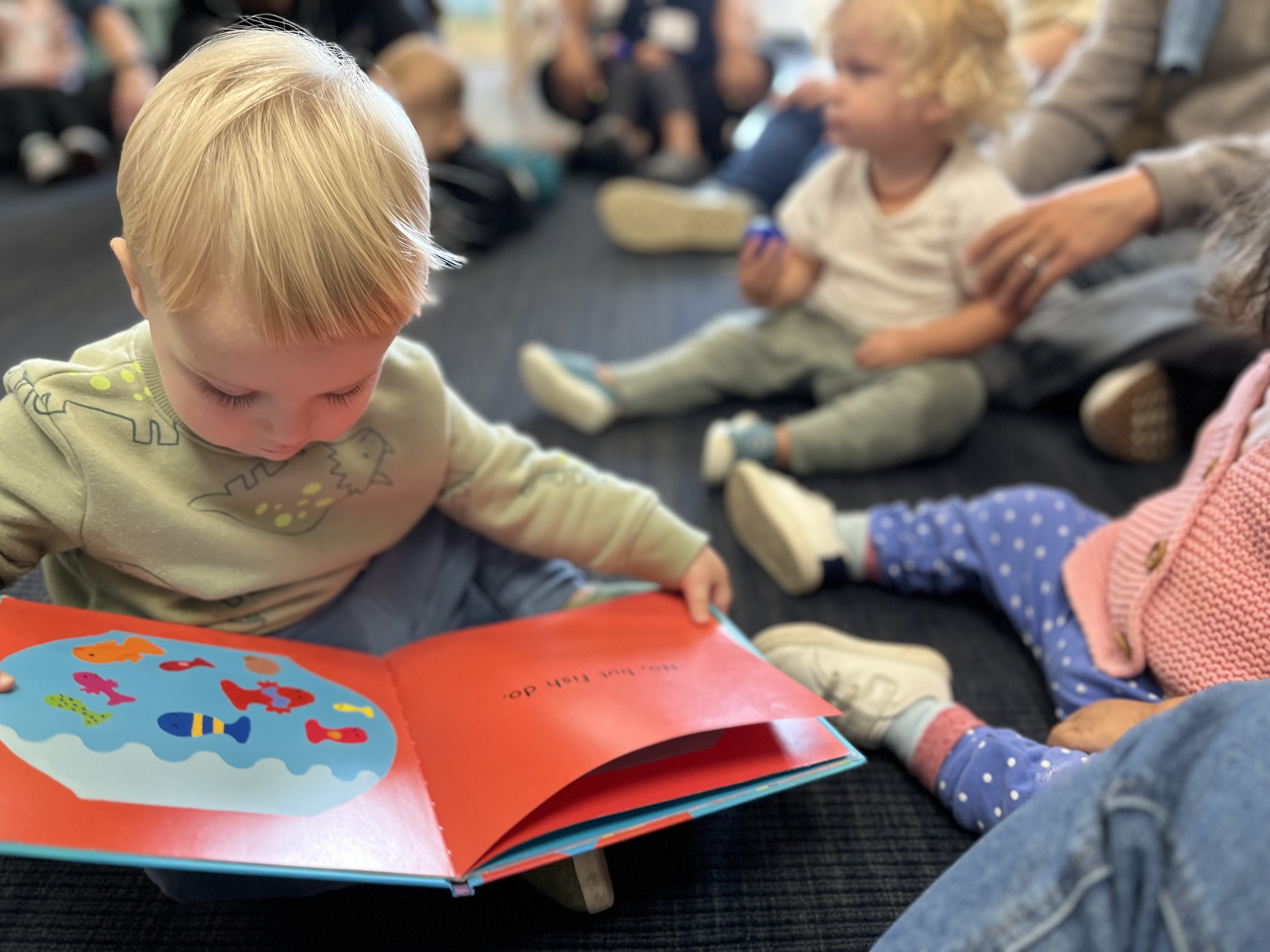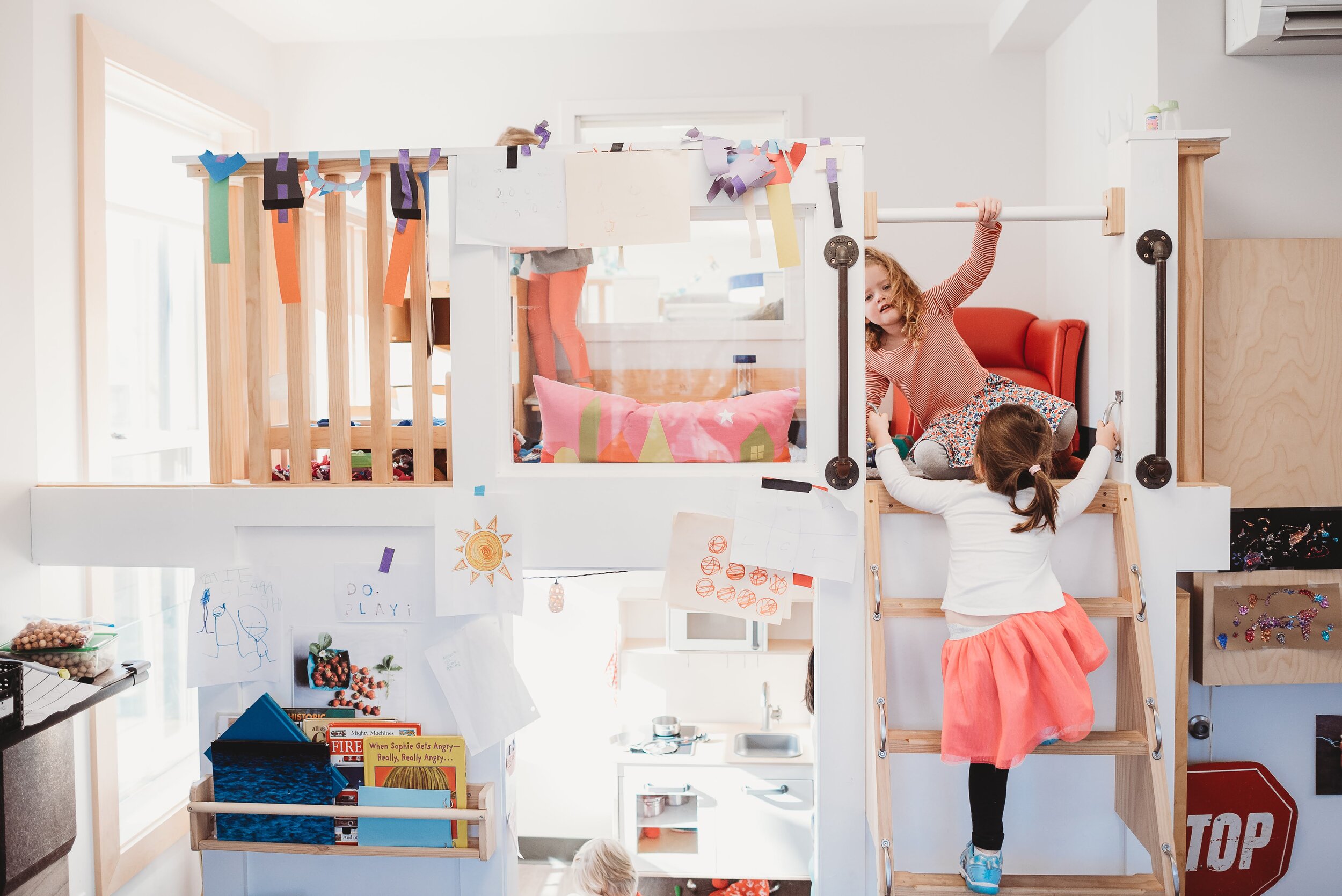All our JK students are 4 years old and older and most have been in group settings, so their focus is less on separation and more on social connections. Communication and negotiation skills necessary to successfully navigate friendships and work in larger groups are supported and modeled by teachers, while acknowledging each child’s increasing sense of individual identity.
Pretend Play for Literacy & Math: Playing with your food IS GOOD
In class, teachers and students talk about ingredients for recipes, chopping vegetables, cooking and feeding babies. Some children enjoy pretending to cook and feed babies or other family members at home, too. Playing out these rituals of family life can be comforting to children and help them process and make sense of these everyday occurrences. It also presents opportunities for language and literacy development.
Meaningful Math: Attributes and Sets! Encourage Children to Think about the World Mathematically
Knowing how to create sets, break them apart, compare and order them gives children the foundational knowledge they need to understand more complex mathematical concepts. Contemplating these concepts in ways that are meaningful to them helps children to develop a deep understanding of basic mathematical and logical concepts that provide the foundation for increasingly complex mathematical topics.
Why We Avoid Forced Apologies
Problem Solving: Encouraging Persistence and Resilience in Children
One way we can help children become good problem solvers is to let them take on everyday dilemmas. At school we do this by, for instance, helping children talk over a dispute or giving them space to figure out how to use the tape to hang something. Offering real world practice to solve problems they’re interested in gives them the chance to strategize, helps them develop resiliency, and encourages them to persist when faced with difficulties.
Helping Children Understand Emotions
Why Do Children Need Nursery School?
Teachers support children as they learn to become successful members of a group. Nursery school is fun but it also requires beginning to understand procedures such as: how to clear your spot at snack, how to gain some self regulation, raising your hand to get a turn, and how to delay gratification. Young children can be successful at these tasks and see that groups need some order when they have the support, encouragement, and modeling of teachers. These skills show children how to be successful members of a group and will be greatly needed as students move into an elementary classroom.
On Listening to Children
Last spring, I was lucky enough to be one of 150 educators from the United States to be invited to attend a conference - a study tour - of the schools of Reggio Emilia. Reggio Emilia is a city in northern Italy which has what is viewed by many as the best early childhood education system in the world. There are many principles underlying the Reggio Approach. The importance of the environment; exploring children's ideas through project work; an emergent curriculum based on the interests of children; the importance of parent involvement; documenting the work of children; and working in multiple mediums with children are some of the foundations of Reggio.
On Separation
I have so enjoyed the days I have been able to welcome children into school at arrival. So many familiar little faces and so many new ones. Some children are able to come into school escorted by an assisting parent, teacher, or me. Other children need the security of having a family member or sitter bring them into school. Both of these comfort levels are appropriate and familiar to staff and returning parents.
On The Importance of Play
In our school literature, Park West depicts its curriculum as play based. But what does that mean and do children really learn when they play? For many, play is natural. It's what children do. But do they need to do it at school? That's an important question because play at school is under assault today. Some parents and school administrators can worry that play gets in the way of content areas and the acquisition of skills that children need to succeed in school and life. They may worry that play is an aimless activity in which no learning happens. This reflects a lack of understanding of child development and how children learn. Because for young children play should BE the curriculum. Play is critically important for young children's learning and development. Through play young children learn ways to initiate and maintain friendships, to engage in symbolic and abstract thinking, and explore new ideas. Play boosts self-confidence and self-respect and fortifies children to face new challenges with enthusiasm and self-assurance. Play benefits every facet of young children's development.















